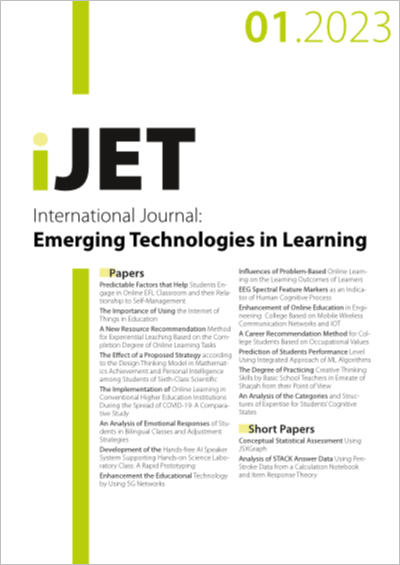An Analysis of Emotional Responses of Students in Bilingual Classes and Adjustment Strategies
DOI:
https://doi.org/10.3991/ijet.v18i01.37125Keywords:
emotional analysis, bilingual class, emotion recognition, bi-linear convolution neural network (CNN), capsule networkAbstract
Students’ willingness to participate in bilingual communication is greatly influenced by their positive emotions in the bilingual class. The automatic recognition of students’ emotional state in bilingual class can assist teachers to correctly master the laws of students’ emotional changes during the bilingual learning process as fast as possible. However, the speech emotion features extracted by existing speech emotion recognition models are not universal and not suitable for bilingual speech emotion recognition, and the accuracy needs to be improved. To cope with these issues, this paper aims to study the emotional responses of students in bilingual class based on emotional analysis and provide adjustment strategies for it. At first, the signals of students’ speech records in bilingual class were pre-processed, the one-dimensional features of the signals were converted into 2-dimensional speech spectrum features so as to attain more useful information to facilitate the emotional recognition of students’ speech records in the bilingual class. Then this paper combined the bi-linear Convolution Neural Network (CNN) with capsule network to construct a bilingual class student emotion recognition model, and experimental results verified the effectiveness of the constructed model.
Downloads
Published
How to Cite
Issue
Section
License
Copyright (c) 2022 Nan Zhang (Submitter); Suyun Wen

This work is licensed under a Creative Commons Attribution 4.0 International License.



